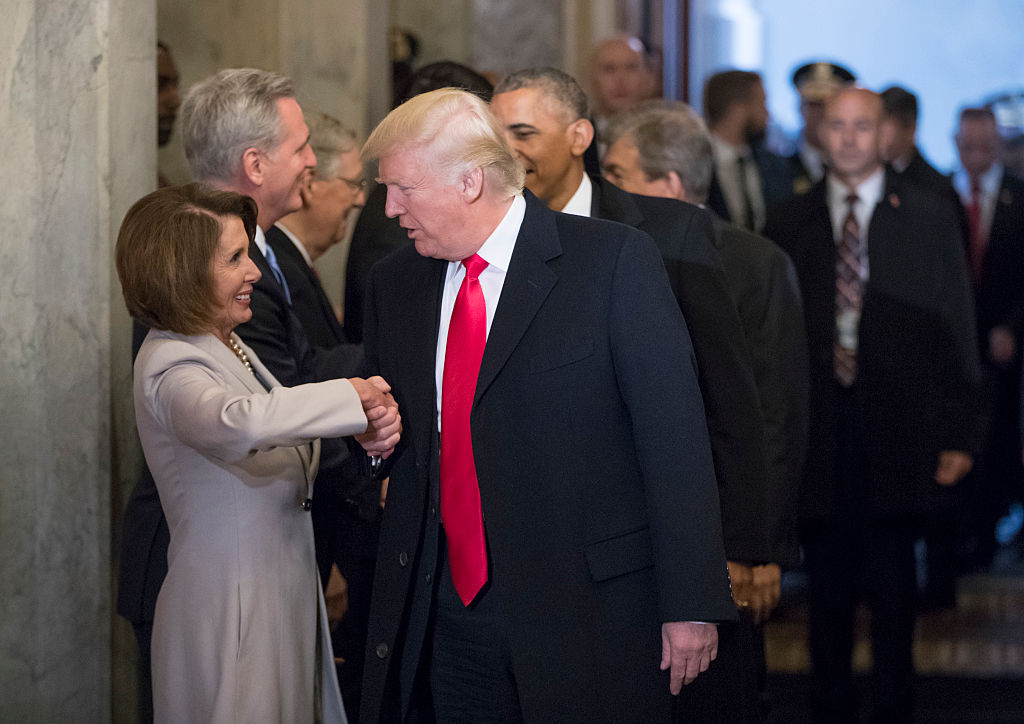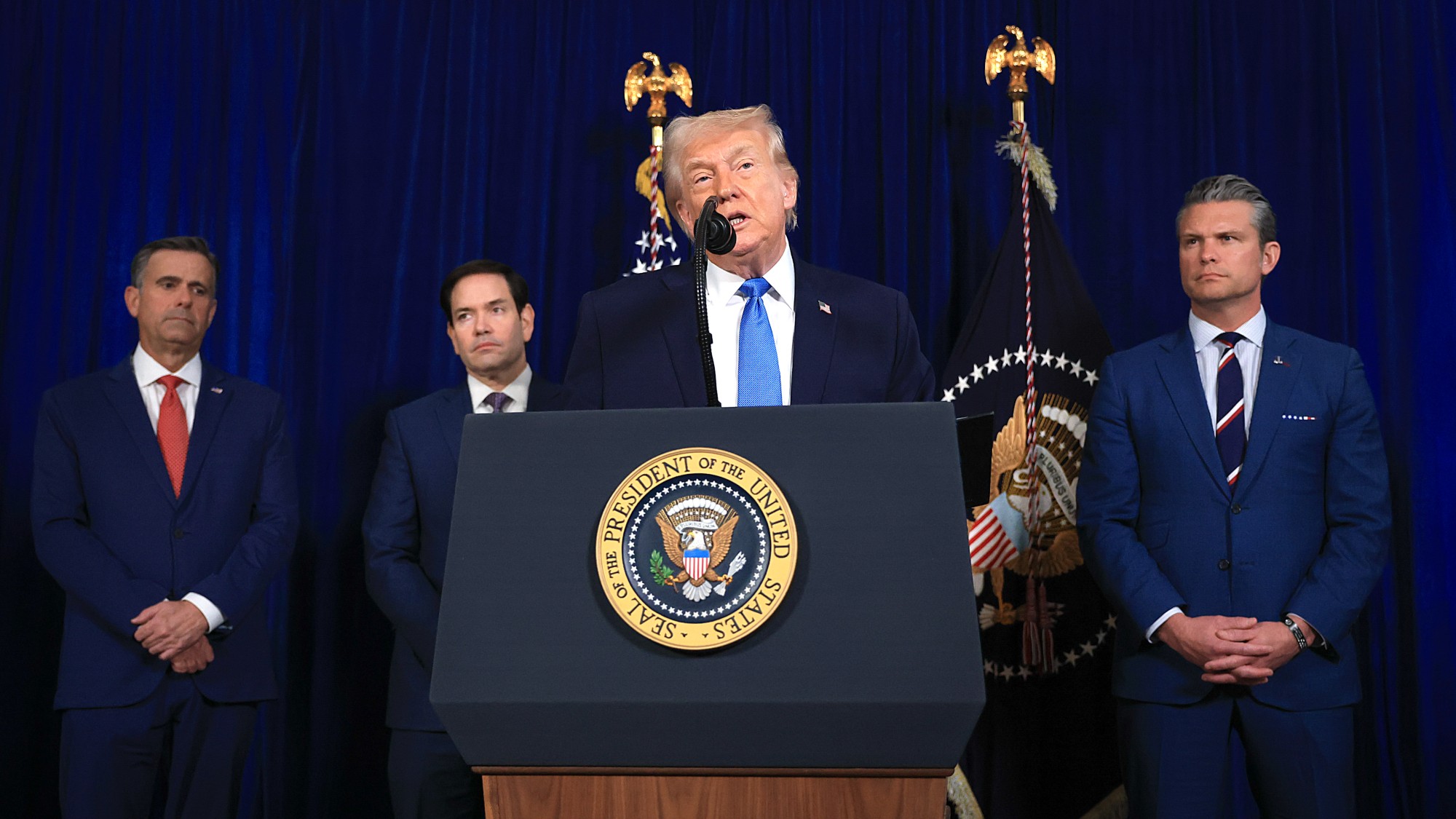Why a GOP midterm shellacking would be good for Trump
The president's party is very likely going to get thumped in November. This will only help him.


Does anybody want the Republican Party to hold on to the House this fall? Certainly Speaker Paul Ryan and the 42 other members of the GOP in the lower chamber who have announced that they will not be running for their seats again don't seem to care much.
What's behind this exodus? Part of it is surely that in affluent suburban districts where constituents are fiscally right-wing but moderate to progressive on social issues, there are no compelling reasons in 2018 for Republican voters not to back a Democrat. The frat-boy wing of the GOP understands this, and they're racing for the exits before voters push them out. But, as my colleague Paul Waldman wrote earlier this year, even Republican congressmen in safe-ish seats might not want to stick around beyond 2018 because "being in the minority in the House sucks. It's a total drag ... [Y]ou barely have anything to do besides answer your constituents' complaints, send out fruitless press releases, and plot what you'll do if you're fortunate enough to get back in charge." It's no wonder droves of Republicans are bailing.
The really important question, then, is whether President Trump should even want his party to be in the majority in the House.
The Week
Escape your echo chamber. Get the facts behind the news, plus analysis from multiple perspectives.

Sign up for The Week's Free Newsletters
From our morning news briefing to a weekly Good News Newsletter, get the best of The Week delivered directly to your inbox.
From our morning news briefing to a weekly Good News Newsletter, get the best of The Week delivered directly to your inbox.
Trump doesn't need Republicans there to rubber-stamp a seemingly endless series of new Cabinet appointees or future Supreme Court justices; he has the Senate for that. If anything, the House has just been an obstacle to the president's attempts at cutting deals with Democrats on the budget, immigration, and other issues.
The president's disdain for ideas and principles are his greatest electoral asset, something that Ryan and other influential conservatives in Washington have always refused to acknowledge. In a dim way, they see why it was that voters warmed to Trump's inchoate populism rather than, say, Jeb Bush's AEI-approved 40-point plans for economic renewal through dynamic growth. But they hate it because it makes everything they stand for seem either ridiculous or nakedly avaricious or both.
Imagine that Democrats win the House this fall. Free from the burden of having to pretend that Ryan's Ayn Rand fan fic is a serious template for governing, Trump could follow through on his obvious ambition to work with Democrats for the sake of doing it. Meanwhile, a GOP in the minority that decided, as minority parties frequently do, to double down on whatever their latest supposed principles are would infuriate him. He could end up signing DACA into law over the objections of Republicans out of pure spite. An infrastructure bill, a reformed (rather than a gutted) version of the Affordable Care Act, even some kind of token funding for his "Space Force" fantasy: All of these things and more suddenly seem possible if Trump is free to cut deals
It is also, of course, possible to imagine a world in which Democratic leadership refuses to work with the president on any issue of importance, one in which Trump ends up in the same position as President Obama after the 2010 midterms. Not being able to pass meaningful legislation for roughly two-thirds of his presidency was helpful to Obama politically. He never had to stand for anything again except opposition to the cynicism and mean-spiritedness of his opponents. Being able to gin up outrage about the failed lying party of Crooked Hillary could likewise play well for Trump in 2020.
A free daily email with the biggest news stories of the day – and the best features from TheWeek.com
Getting things done would appeal to swing voters in the Midwest; tweeting about obstructionist Democrats would shore up the right-wing base. Either scenario is preferable for Trump to one in which he is forced to answer for the stupidity of congressional Republicans who cannot believe that giving hundreds of billions of dollars to corporations and a handful of Tootsie Pops to working families is not a stunning vindication of their sincerely held beliefs.
No matter what happens, it is hard to see a scenario in which it is not in Trump's best interest for his party to lose this year's midterms. That Democrats might choose to pursue his impeachment is not beyond the bounds of possibility, but it is unlikely that their majority will extend much beyond the 218 votes necessary to approve the articles; even a handful of moderate defectors would sink the process. With the math looking, by contrast, very much in Republicans' favor this year over in the Senate, Trump's removal from office even in the event of impeachment is a freakishly remote contingency. Trying to impeach him and failing would be worse than not making the attempt. I don't think it's in the cards.
What does this mean? That Pelosi should start campaigning for Ryan's eventual Republican successor? Or that the president should do his best to undermine some House GOP candidates by offering endorsements in districts won by Hillary Clinton and refusing to appear on behalf of others in blue-state counties that he carried two years ago? No. But it does mean that voting in 2018 will continue to look less and less like a straightforward prudential decision about the best person for a given job and more like a ludicrous game of eight-dimensional chess involving blue and red pieces.
Matthew Walther is a national correspondent at The Week. His work has also appeared in First Things, The Spectator of London, The Catholic Herald, National Review, and other publications. He is currently writing a biography of the Rev. Montague Summers. He is also a Robert Novak Journalism Fellow.
-
 Courgette and leek ijeh (Arabic frittata) recipe
Courgette and leek ijeh (Arabic frittata) recipeThe Week Recommends Soft leeks, tender courgette, and fragrant spices make a crisp frittata
-
 Trump’s power grab: the start of a new world order?
Trump’s power grab: the start of a new world order?Talking Point Following the capture of Nicolás Maduro, the US president has shown that arguably power, not ‘international law’, is the ultimate guarantor of security
-
 Unrest in Iran: how the latest protests spread like wildfire
Unrest in Iran: how the latest protests spread like wildfireIn the Spotlight Deep-rooted discontent at the country’s ‘entire regime’ and economic concerns have sparked widespread protest far beyond Tehran
-
 The billionaires’ wealth tax: a catastrophe for California?
The billionaires’ wealth tax: a catastrophe for California?Talking Point Peter Thiel and Larry Page preparing to change state residency
-
 Bari Weiss’ ‘60 Minutes’ scandal is about more than one report
Bari Weiss’ ‘60 Minutes’ scandal is about more than one reportIN THE SPOTLIGHT By blocking an approved segment on a controversial prison holding US deportees in El Salvador, the editor-in-chief of CBS News has become the main story
-
 Has Zohran Mamdani shown the Democrats how to win again?
Has Zohran Mamdani shown the Democrats how to win again?Today’s Big Question New York City mayoral election touted as victory for left-wing populists but moderate centrist wins elsewhere present more complex path for Democratic Party
-
 Millions turn out for anti-Trump ‘No Kings’ rallies
Millions turn out for anti-Trump ‘No Kings’ ralliesSpeed Read An estimated 7 million people participated, 2 million more than at the first ‘No Kings’ protest in June
-
 Ghislaine Maxwell: angling for a Trump pardon
Ghislaine Maxwell: angling for a Trump pardonTalking Point Convicted sex trafficker's testimony could shed new light on president's links to Jeffrey Epstein
-
 The last words and final moments of 40 presidents
The last words and final moments of 40 presidentsThe Explainer Some are eloquent quotes worthy of the holders of the highest office in the nation, and others... aren't
-
 The JFK files: the truth at last?
The JFK files: the truth at last?In The Spotlight More than 64,000 previously classified documents relating the 1963 assassination of John F. Kennedy have been released by the Trump administration
-
 'Seriously, not literally': how should the world take Donald Trump?
'Seriously, not literally': how should the world take Donald Trump?Today's big question White House rhetoric and reality look likely to become increasingly blurred
